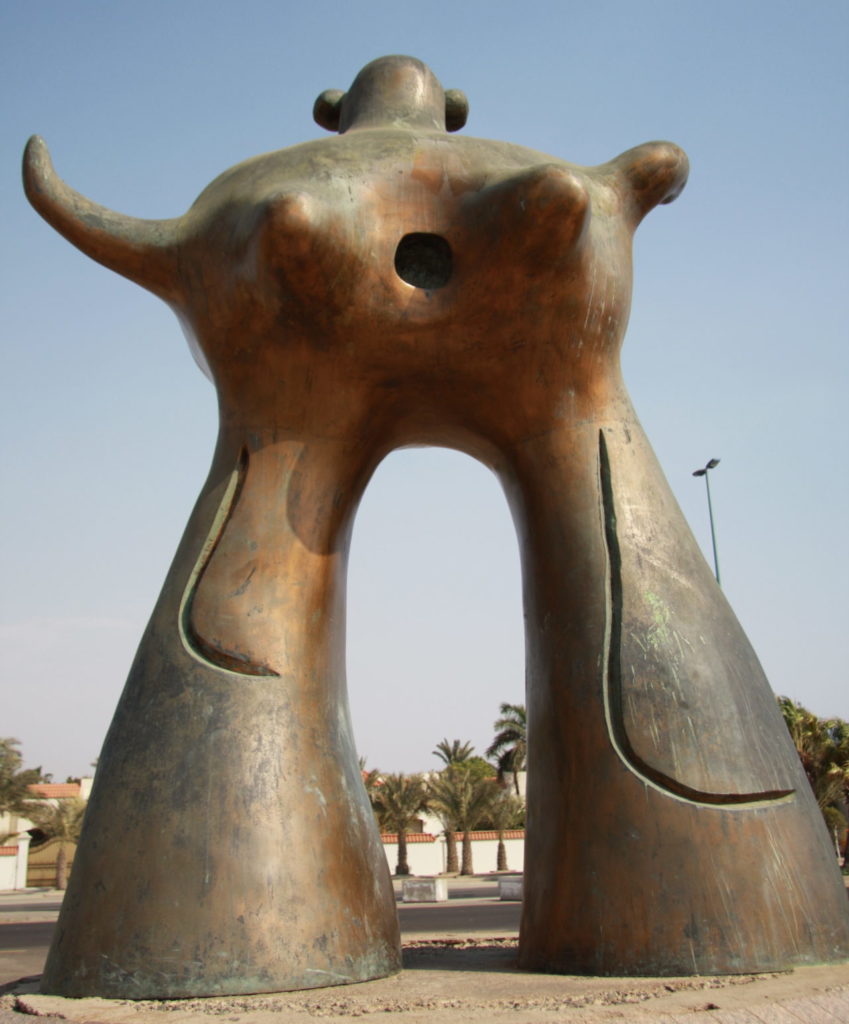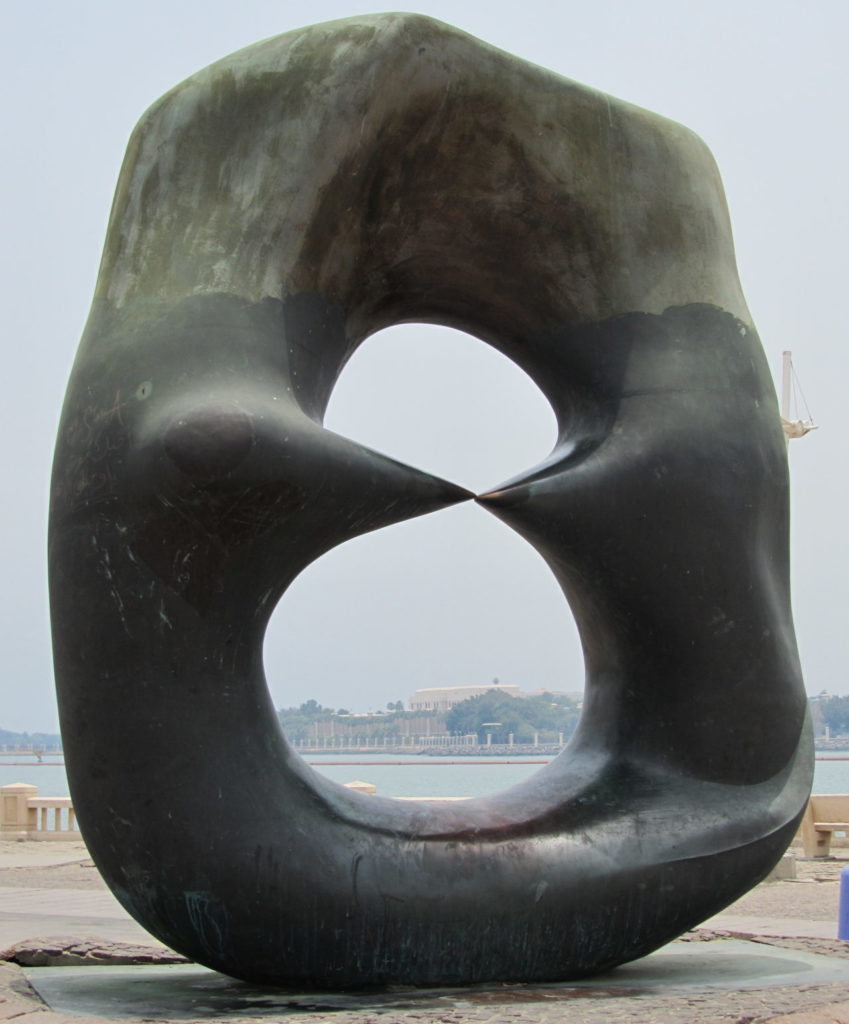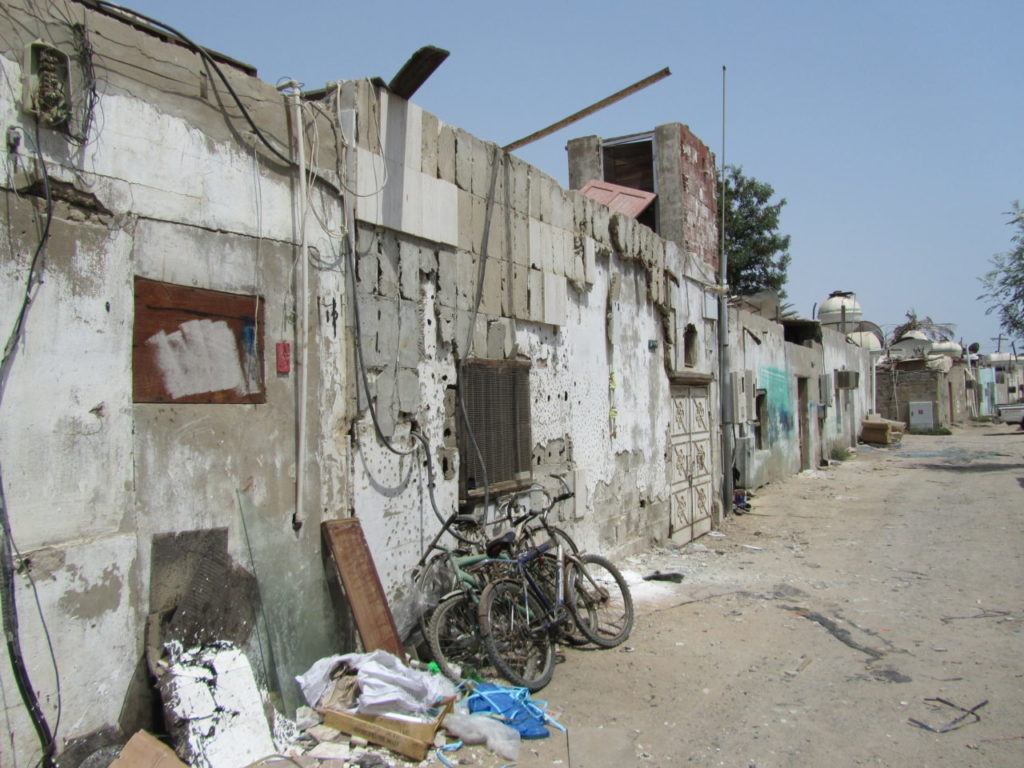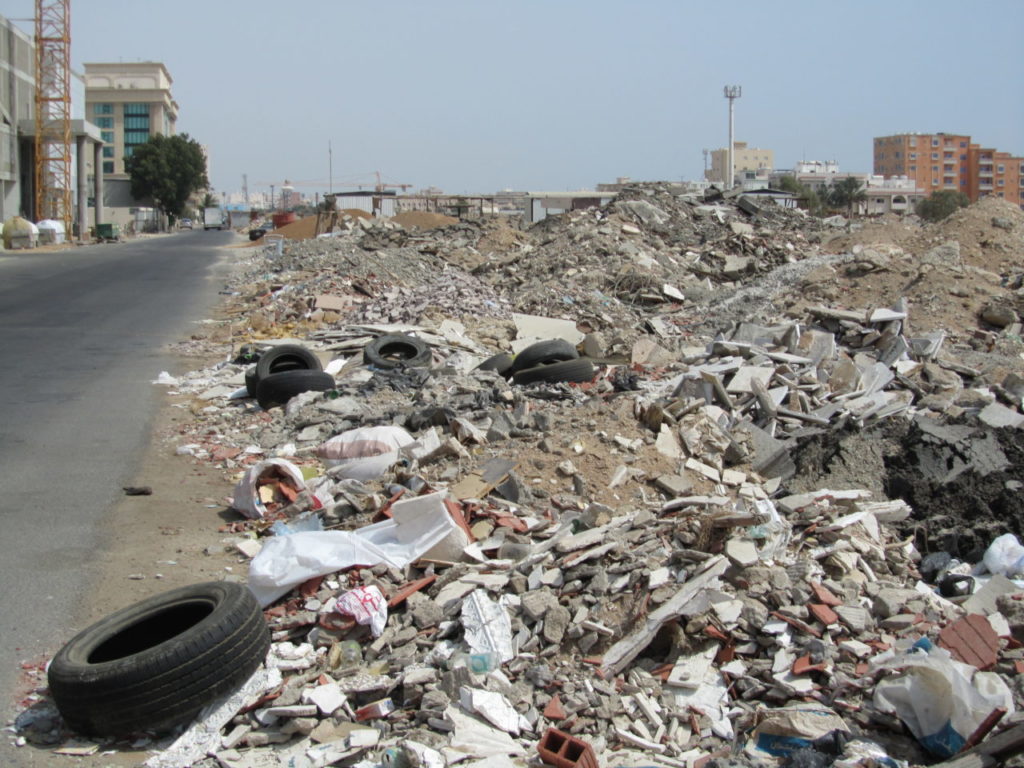
COLIN SIMPSON
Jeddah Corniche sculptures
THERE’S been a lot of talk about modernisation in Saudi Arabia recently, with reforms such as the opening of cinemas and allowing women to drive being widely reported.
This is not the first time, however, that the kingdom has sought to embrace the new, though the previous attempt involved art, not social and economic changes.
Back in the 1970s Mohamed Said Farsi, the mayor of the Red Sea port city of Jeddah, embarked on a huge “beautification project” based around modern art. Monumental sculptures by the likes of Joan Miró, Henry Moore and Jean Arp, many of them specially commissioned, began appearing along the Corniche in an era when the petrodollars were in full flow.
The project caused controversy locally as many residents felt it was a waste of money. However Farsi’s son Hany, speaking to The National newspaper, said no government cash was involved – the purchase of 400 works was funded by public donations or the mayor’s own resources.
Nevertheless, as I gazed up at, say, Miró’s Project for a Monument, I couldn’t help thinking that large-scale abstract modern art seemed an odd priority when, decades later, some housing in Jeddah remained dire, beggars held out their hands towards passing cars beneath flyovers, and piles of rubble seemed a more pressing candidate for beautification.
Still, there’s no doubting the quality of some of the works, and they do enliven a city where it can be difficult to think of things to do. Descriptions of Jeddah as liberal and easygoing are by Saudi, not Western, standards.
My favourite sculptures include that Miró – one of two by the artist on the Corniche – Arnaldo Pomodoro’s Rotating First Section No. 3, Moore’s Oval with Points and Ottmar Hollmann’s Large Ball Bearing. Julio Lafuente’s Accident! (Crazy Speed), with its cars set into a concrete block, captures perfectly the experience of driving on Jeddah’s Wild West roads.
Four decades standing in a harsh maritime environment took its toll on the sculptures, leading to the launch of a major restoration project. Around 20 of the finest pieces were repaired by experts and moved from their original locations to the open-air Jeddah Sculpture Museum. The artworks are not the only giant spectacle in Jeddah. Across the water from the Corniche, shooting up hundreds of metres into the sky, is King Fahd’s Fountain, the tallest in the world.
Verdict: Startling collection of large-scale Western modern art in an incongruous setting.
Top tip: If you’re taking photos on the Corniche make sure there are no Saudi women in the background to avoid offending locals.
Top photo: Ottmar Hollmann’s Large Ball Bearing.
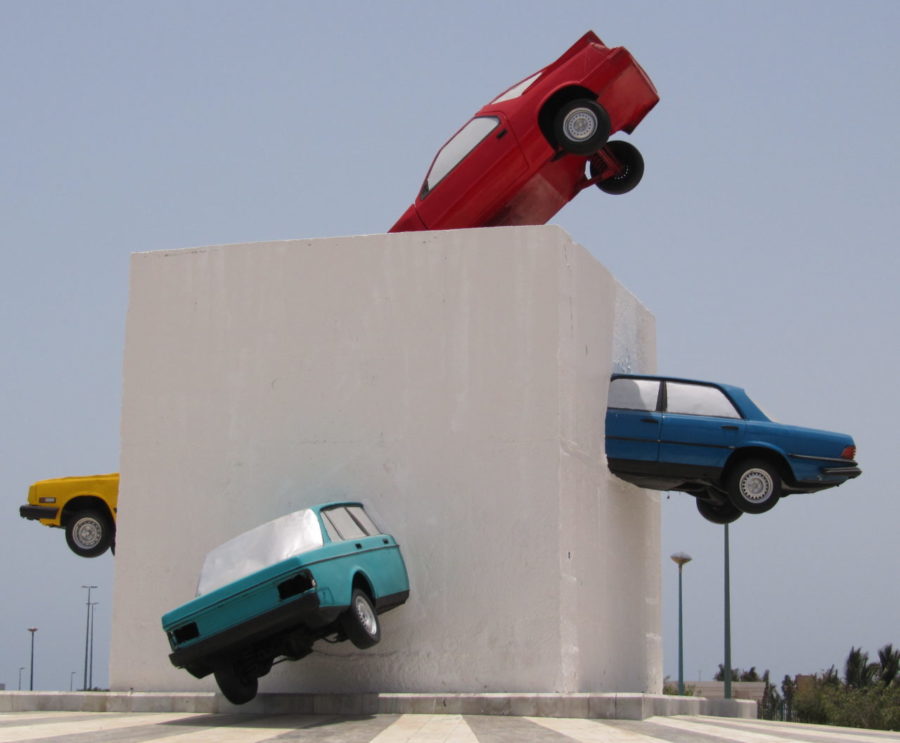
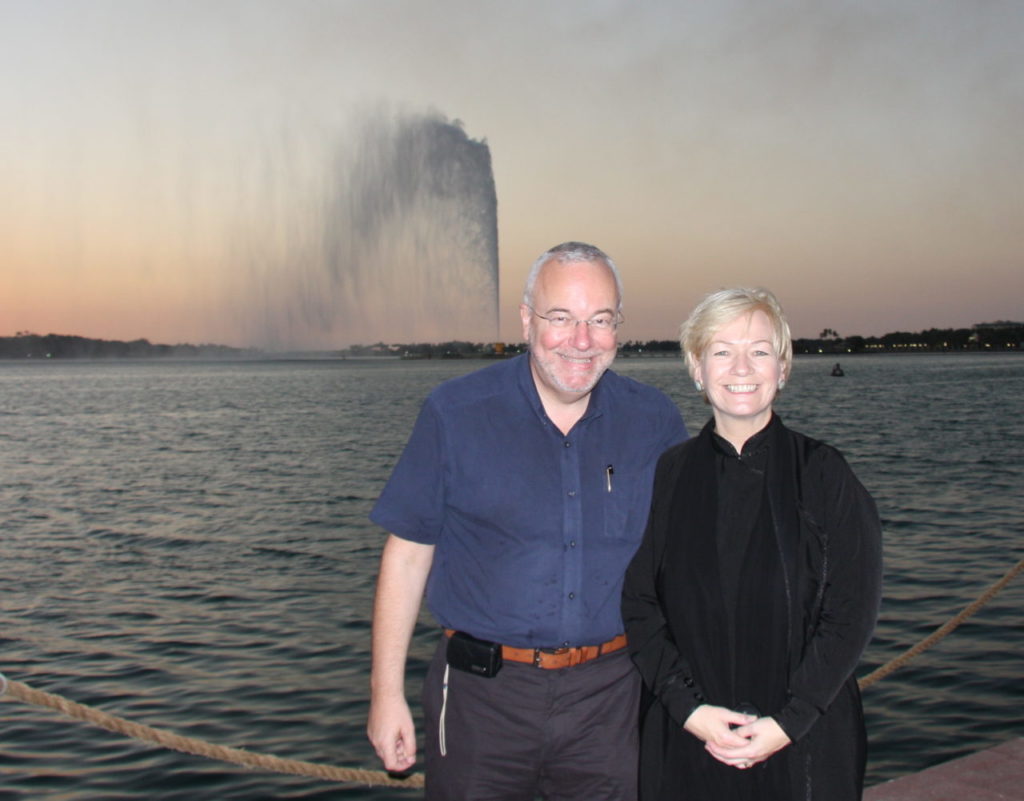
Updated June 2020


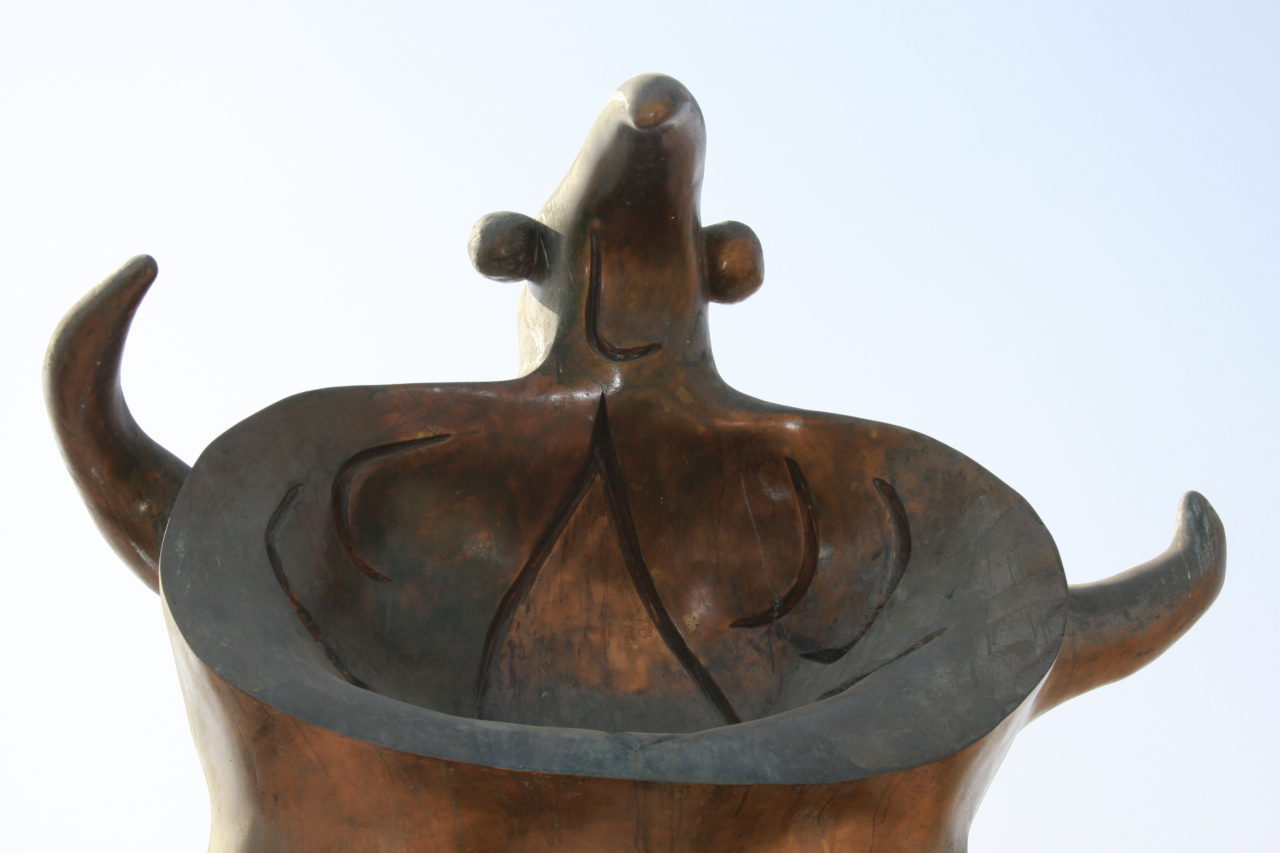

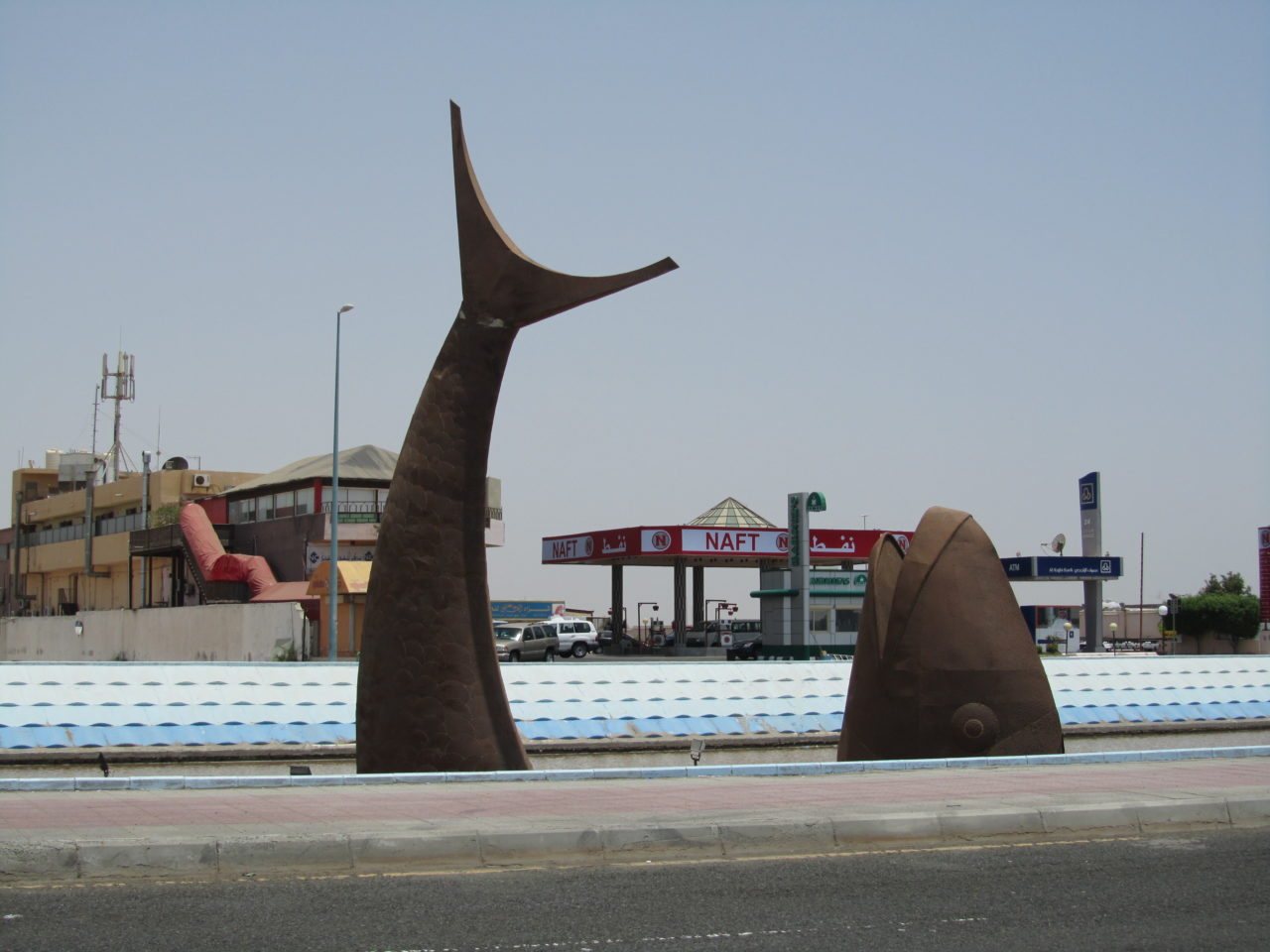
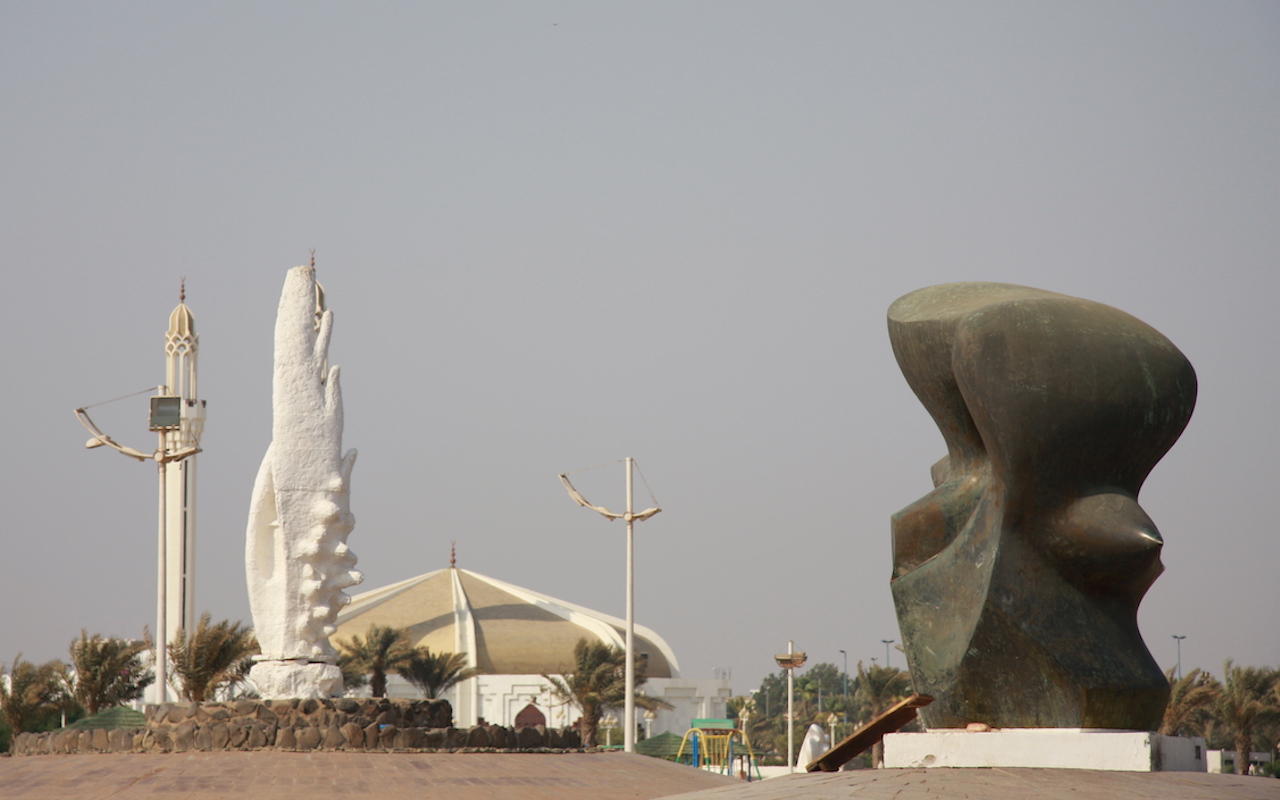

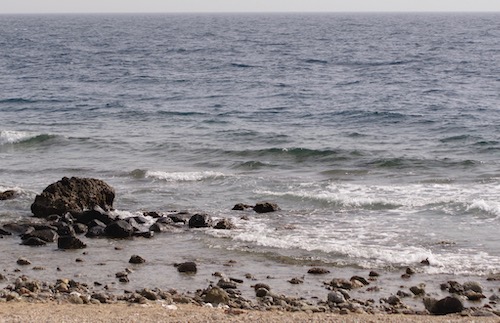


MORE INFO
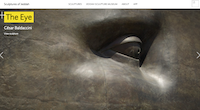 WEBSITES IN SAUDI ARABIA can be pretty skimpy and uninformative, but the official Sculptures of Jeddah one is an exception. READ MORE
WEBSITES IN SAUDI ARABIA can be pretty skimpy and uninformative, but the official Sculptures of Jeddah one is an exception. READ MORE
RELATED
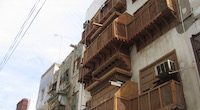 NEW LIFE FOR OLD TOWN: Al-Balad, the ancient heart of the Red Sea port city of Jeddah, fell into disrepair during Saudi Arabia’s oil rush. Now it’s being brought back to life… READ MORE
NEW LIFE FOR OLD TOWN: Al-Balad, the ancient heart of the Red Sea port city of Jeddah, fell into disrepair during Saudi Arabia’s oil rush. Now it’s being brought back to life… READ MORE
 DESERT CAMEL FARM: Countries around the Arabian Gulf stage camel beauty contests with huge cash prizes – find out more in our post about visiting a camel farm in Saudi Arabia… READ MORE
DESERT CAMEL FARM: Countries around the Arabian Gulf stage camel beauty contests with huge cash prizes – find out more in our post about visiting a camel farm in Saudi Arabia… READ MORE
RECOMMENDED
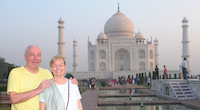 WELCOME TO OUR WORLD! Afaranwide’s home page – this is where you can find out about our latest posts and other highlights. READ MORE
WELCOME TO OUR WORLD! Afaranwide’s home page – this is where you can find out about our latest posts and other highlights. READ MORE
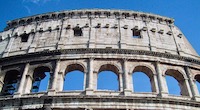 TOP 10 VIRTUAL ATTRACTIONS: Many of the world’s most popular tourists sites are closed because of the coronavirus crisis, but you can still visit them virtually while you’re self-isolating. READ MORE
TOP 10 VIRTUAL ATTRACTIONS: Many of the world’s most popular tourists sites are closed because of the coronavirus crisis, but you can still visit them virtually while you’re self-isolating. READ MORE
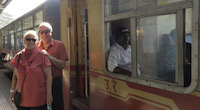 SHIMLA, QUEEN OF THE HILLS: Government officials once retreated to Shimla in the foothills of the Himalayas to escape India’s blazing hot summers. Now tourists make the same journey. READ MORE
SHIMLA, QUEEN OF THE HILLS: Government officials once retreated to Shimla in the foothills of the Himalayas to escape India’s blazing hot summers. Now tourists make the same journey. READ MORE
 TEN THINGS WE LEARNED: Our up-to-the-minute guide to creating a website, one step at a time. The costs, the mistakes – it’s what we wish we’d known when we started blogging. READ MORE
TEN THINGS WE LEARNED: Our up-to-the-minute guide to creating a website, one step at a time. The costs, the mistakes – it’s what we wish we’d known when we started blogging. READ MORE
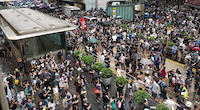 TROUBLED TIMES FOR EXPATS: Moving abroad can seem an idyllic prospect, but what happens when sudden upheavals or the inescapable realities of life intrude? READ MORE
TROUBLED TIMES FOR EXPATS: Moving abroad can seem an idyllic prospect, but what happens when sudden upheavals or the inescapable realities of life intrude? READ MORE
LET'S KEEP IN TOUCH!
Jeddah's Amazing
Giant Sculptures

COLIN SIMPSON
Jeddah Corniche sculptures
THERE’S been a lot of talk about modernisation in Saudi Arabia recently, with reforms such as the opening of cinemas and allowing women to drive being widely reported.
This is not the first time, however, that the kingdom has sought to embrace the new, though the previous attempt involved art, not social and economic changes.
Back in the 1970s Mohamed Said Farsi, the mayor of the Red Sea port city of Jeddah, embarked on a huge “beautification project” based around modern art. Monumental sculptures by the likes of Joan Miró, Henry Moore and Jean Arp, many of them specially commissioned, began appearing along the Corniche in an era when the petrodollars were in full flow.
The project caused controversy locally as many residents felt it was a waste of money. However Farsi’s son Hany, speaking to The National newspaper, said no government cash was involved – the purchase of 400 works was funded by public donations or the mayor’s own resources.
Nevertheless, as I gazed up at, say, Miró’s Project for a Monument, I couldn’t help thinking that large-scale abstract modern art seemed an odd priority when, decades later, some housing in Jeddah remained dire, beggars held out their hands towards passing cars beneath flyovers, and piles of rubble seemed a more pressing candidate for beautification.
Still, there’s no doubting the quality of some of the works, and they do enliven a city where it can be difficult to think of things to do. Descriptions of Jeddah as liberal and easygoing are by Saudi, not Western, standards.
My favourite sculptures include that Miró – one of two by the artist on the Corniche – Arnaldo Pomodoro’s Rotating First Section No. 3, Moore’s Oval with Points and Ottmar Hollmann’s Large Ball Bearing. Julio Lafuente’s Accident! (Crazy Speed), with its cars set into a concrete block, captures perfectly the experience of driving on Jeddah’s Wild West roads.
Four decades standing in a harsh maritime environment took its toll on the sculptures, leading to the launch of a major restoration project. Around 20 of the finest pieces were repaired by experts and moved from their original locations to the open-air Jeddah Sculpture Museum. The artworks are not the only giant spectacle in Jeddah. Across the water from the Corniche, shooting up hundreds of metres into the sky, is King Fahd’s Fountain, the tallest in the world.
Verdict: Startling collection of large-scale Western modern art in an incongruous setting.
Top tip: If you’re taking photos on the Corniche make sure there are no Saudi women in the background to avoid offending locals.
Top photo: Ottmar Hollmann’s Large Ball Bearing.


Updated June 2020
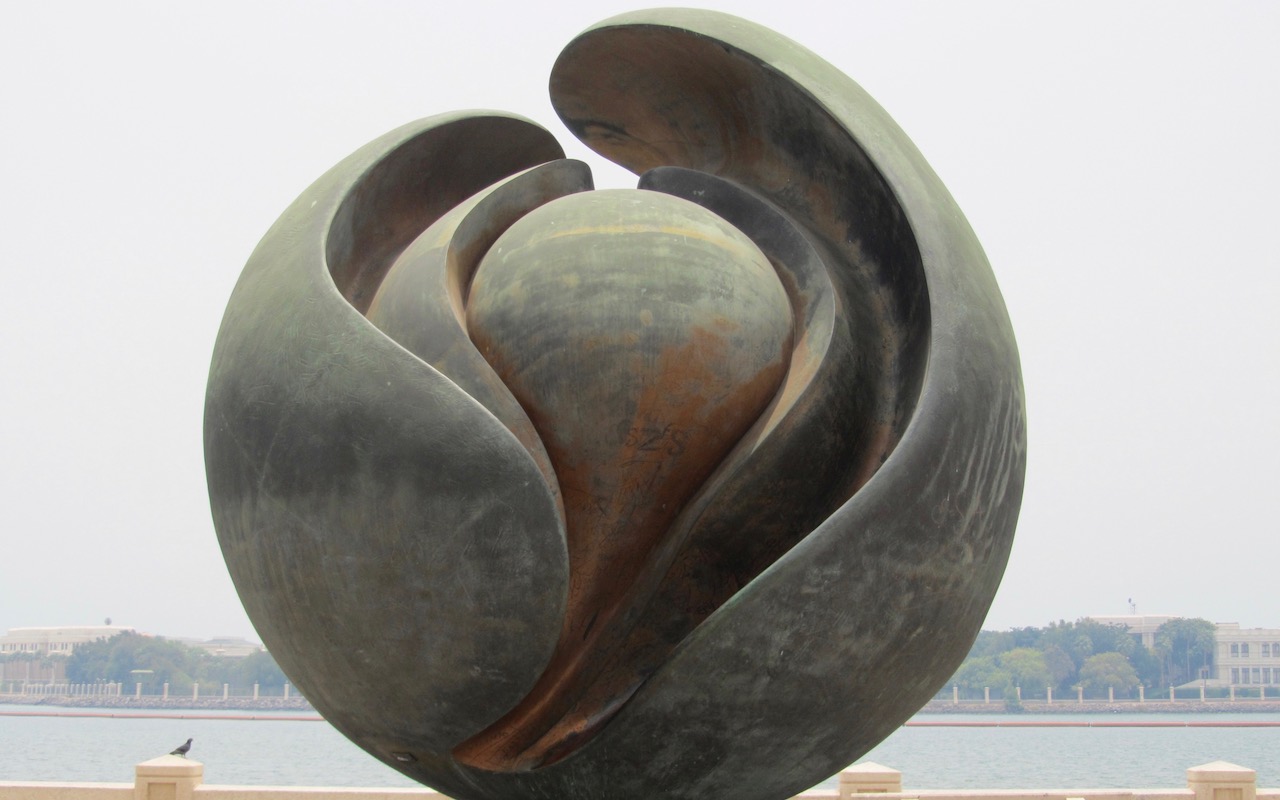
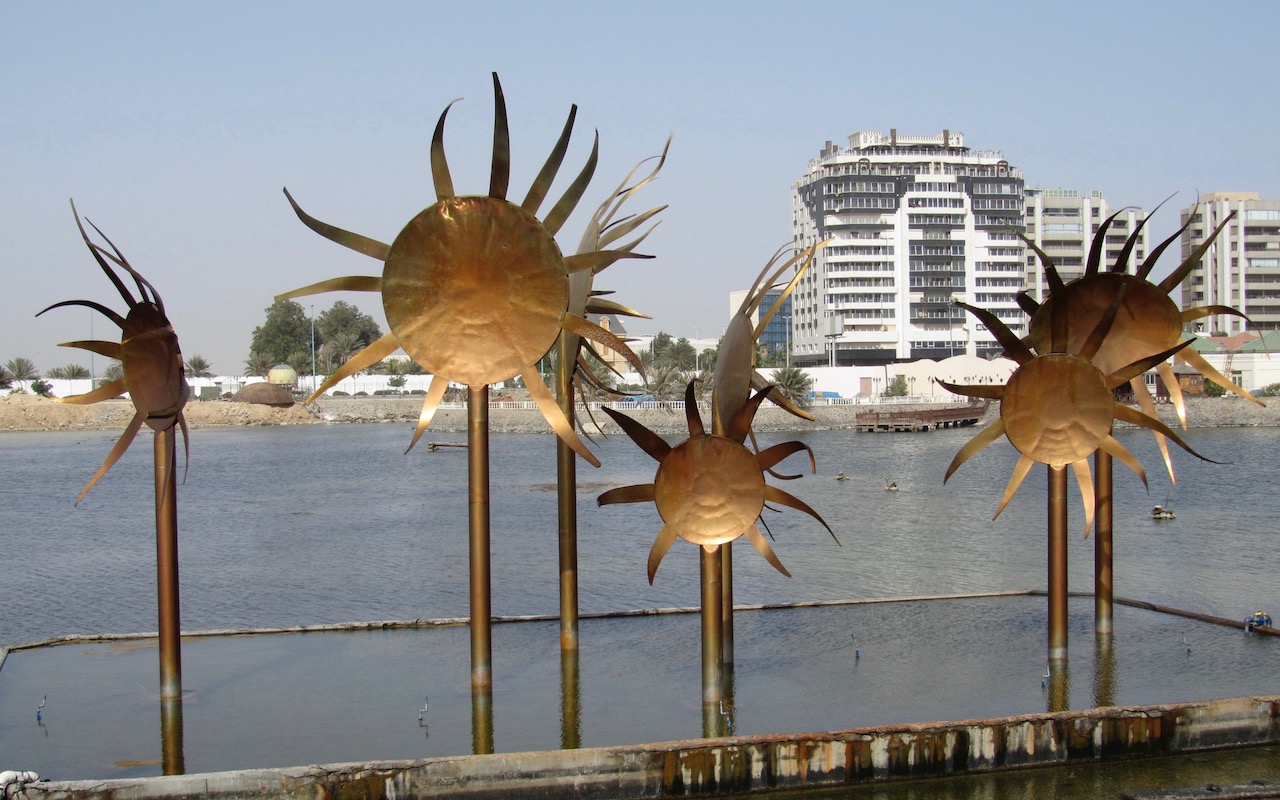
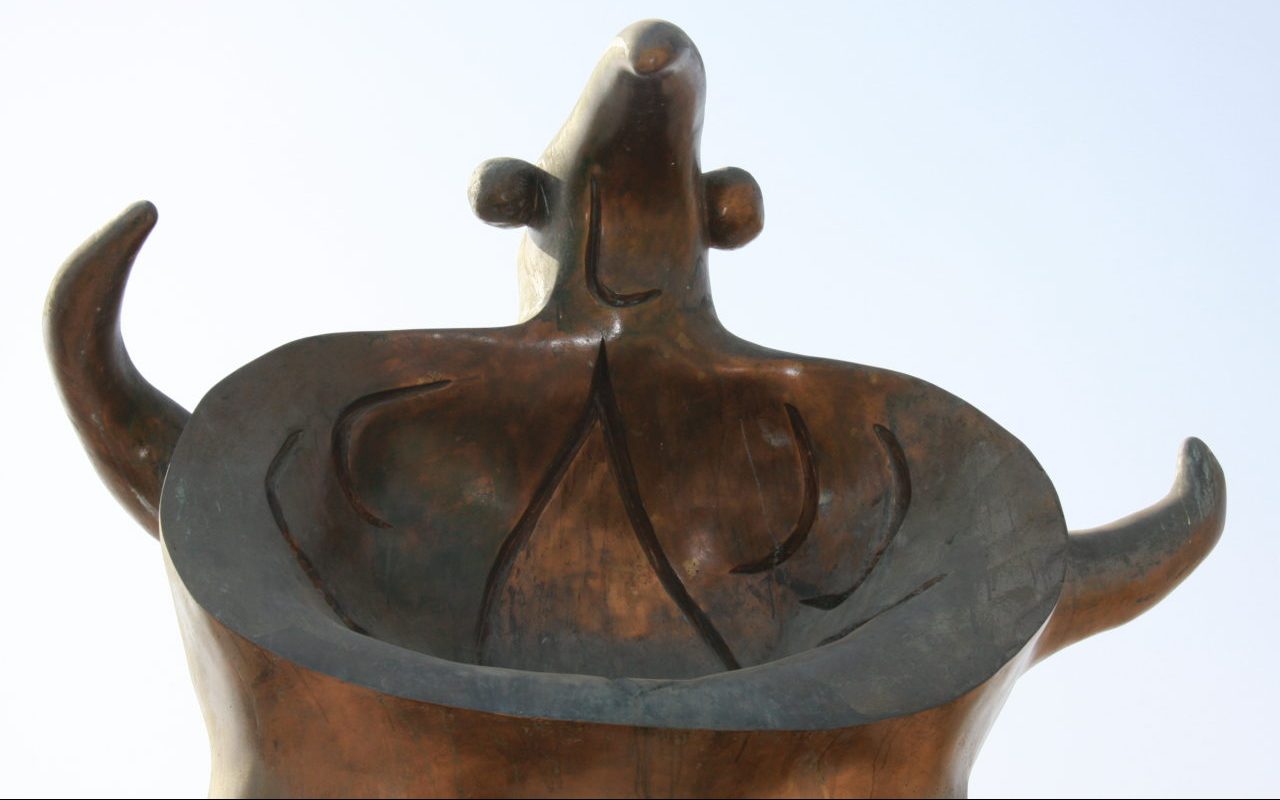
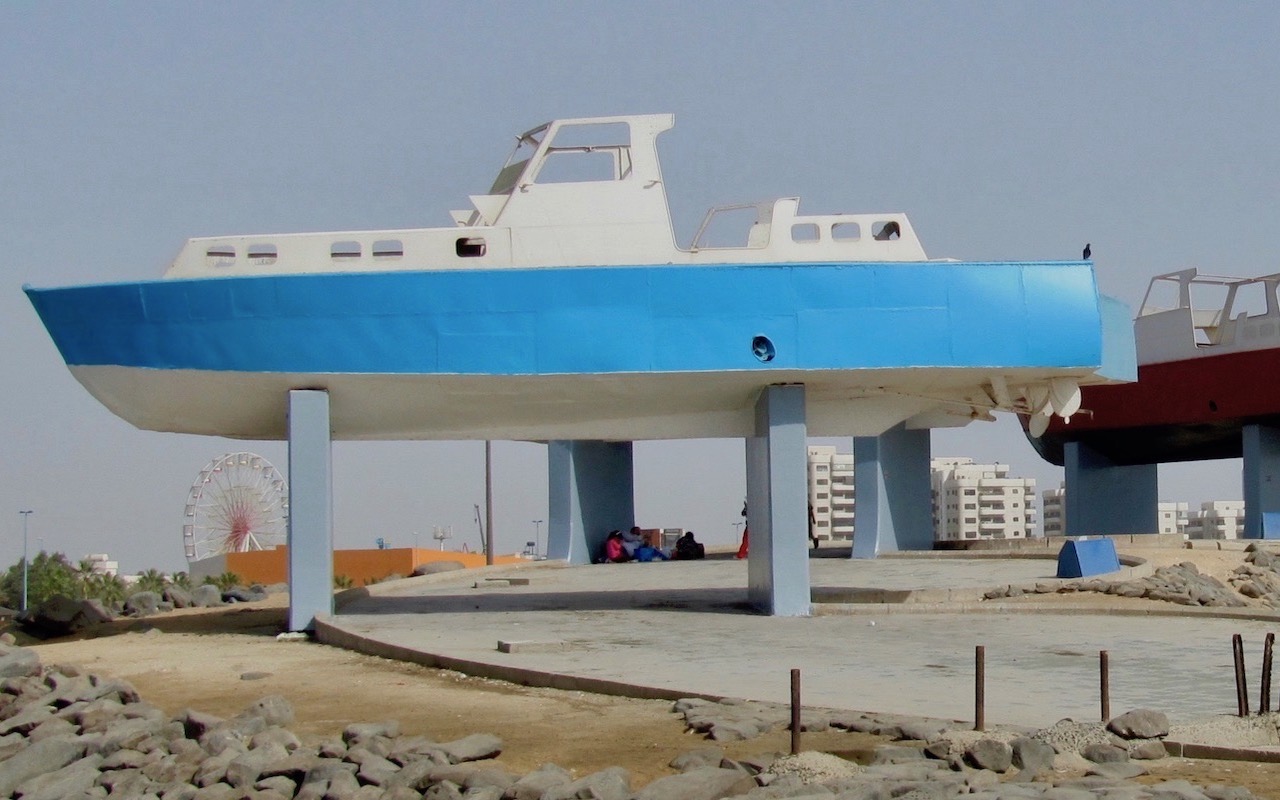
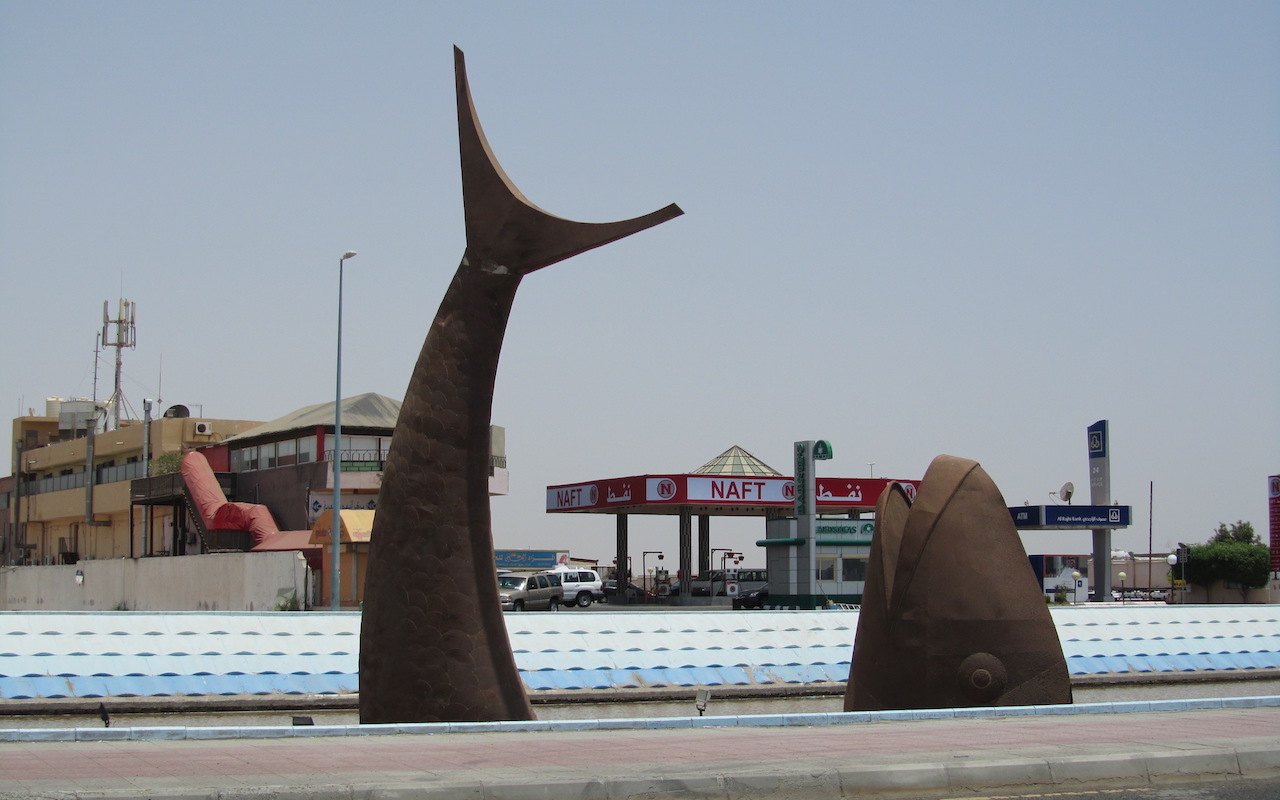

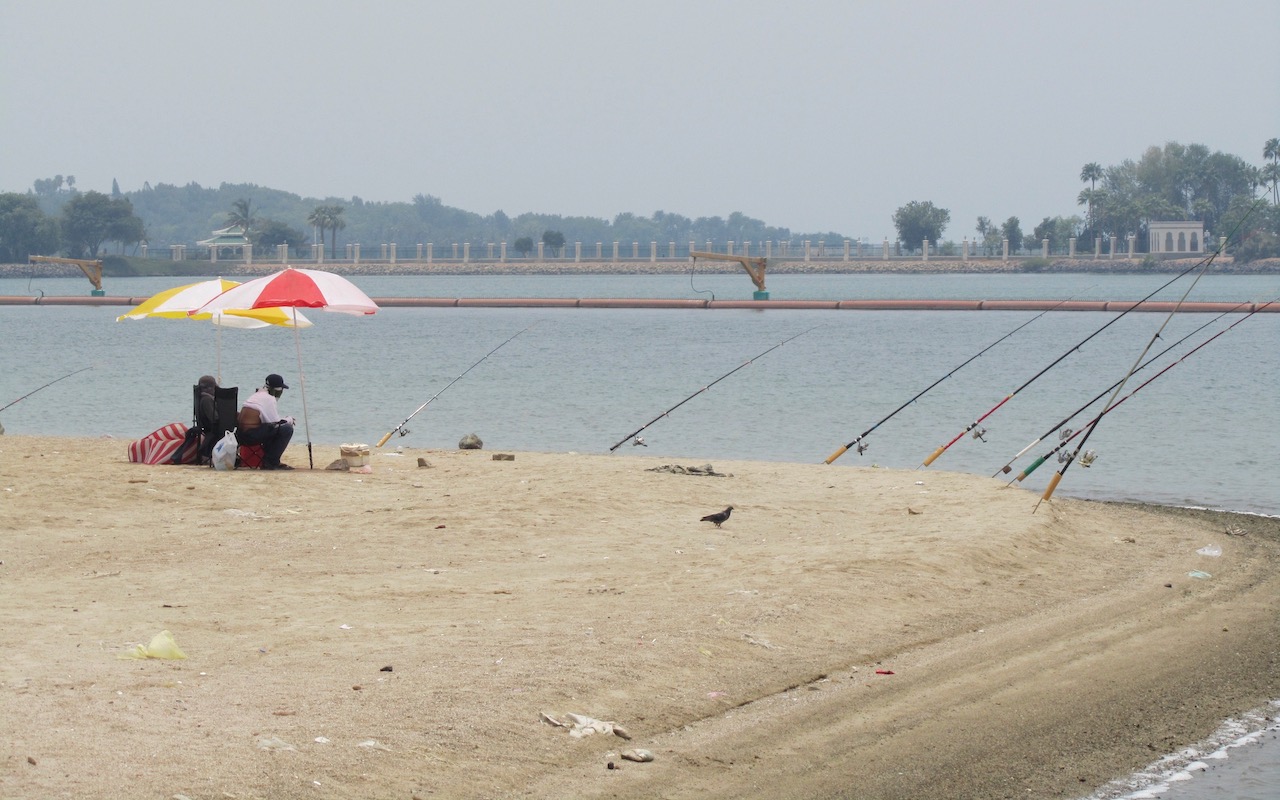
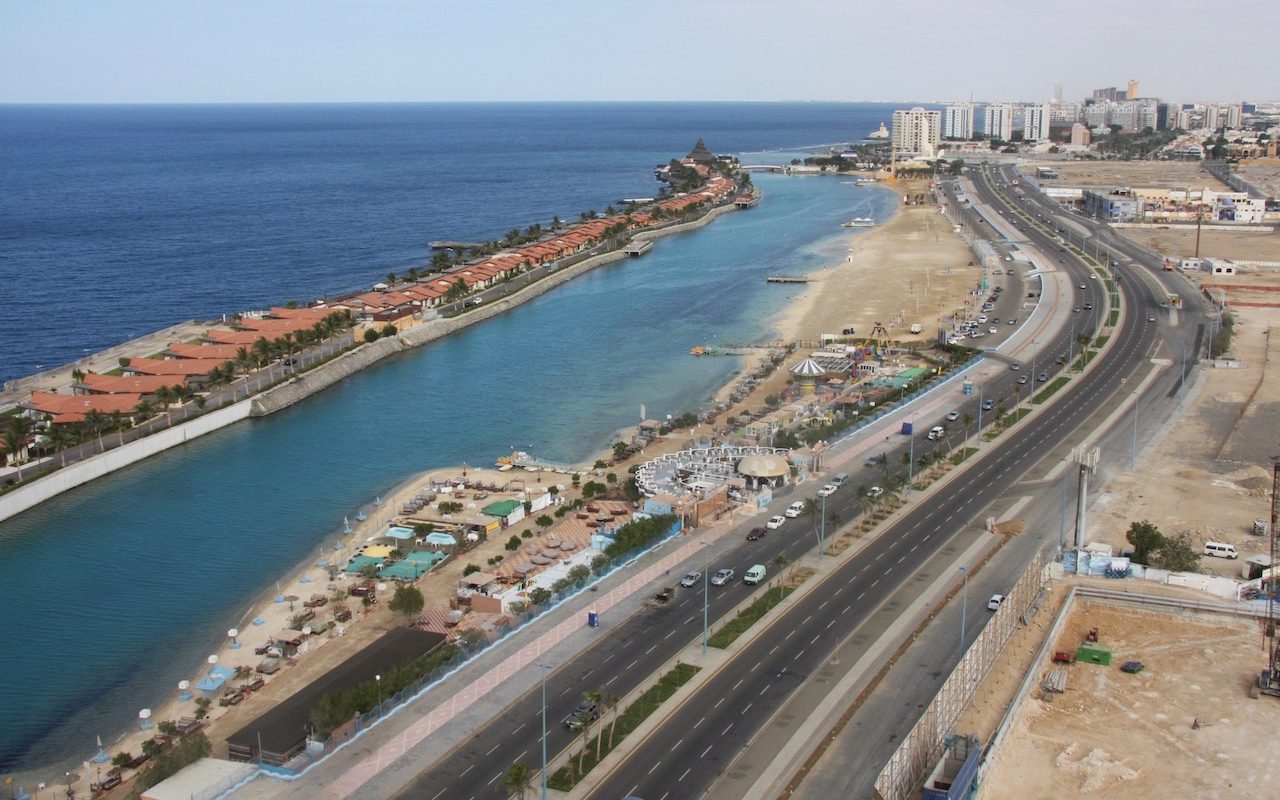
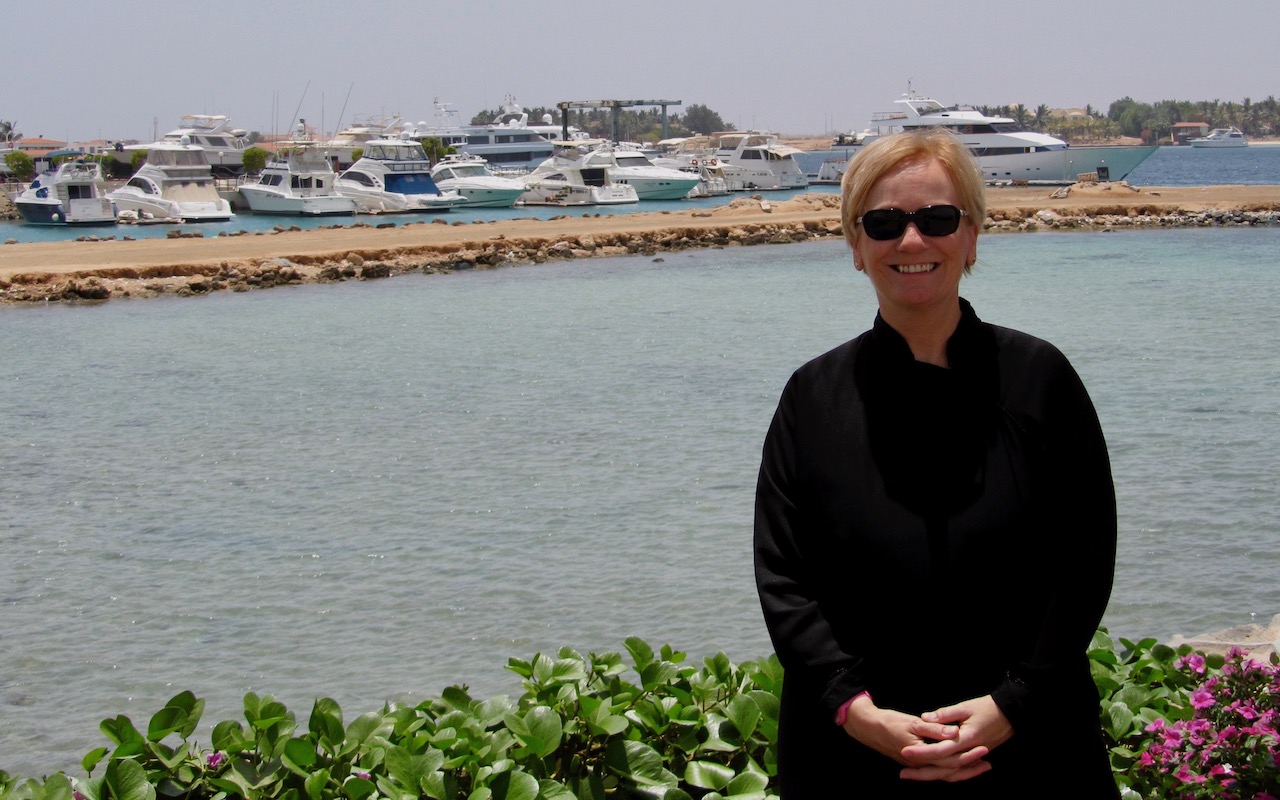
MORE INFO
 WEBSITES IN SAUDI ARABIA can be pretty skimpy and uninformative, but the official Sculptures of Jeddah one is an exception. READ MORE
WEBSITES IN SAUDI ARABIA can be pretty skimpy and uninformative, but the official Sculptures of Jeddah one is an exception. READ MORE
RELATED
 NEW LIFE FOR OLD TOWN: Al-Balad, the ancient heart of the Red Sea port city of Jeddah, fell into disrepair during Saudi Arabia’s oil rush. Now it’s being brought back to life… READ MORE
NEW LIFE FOR OLD TOWN: Al-Balad, the ancient heart of the Red Sea port city of Jeddah, fell into disrepair during Saudi Arabia’s oil rush. Now it’s being brought back to life… READ MORE
 DESERT CAMEL FARM: Countries around the Arabian Gulf stage camel beauty contests with huge cash prizes – find out more in our post about visiting a camel farm in Saudi Arabia… READ MORE
DESERT CAMEL FARM: Countries around the Arabian Gulf stage camel beauty contests with huge cash prizes – find out more in our post about visiting a camel farm in Saudi Arabia… READ MORE
RECOMMENDED
 WELCOME TO OUR WORLD! Afaranwide’s home page – this is where you can find out about our latest posts and other highlights. READ MORE
WELCOME TO OUR WORLD! Afaranwide’s home page – this is where you can find out about our latest posts and other highlights. READ MORE
 TOP 10 VIRTUAL ATTRACTIONS: Many of the world’s most popular tourists sites are closed because of the coronavirus crisis, but you can still visit them virtually while you’re self-isolating. READ MORE
TOP 10 VIRTUAL ATTRACTIONS: Many of the world’s most popular tourists sites are closed because of the coronavirus crisis, but you can still visit them virtually while you’re self-isolating. READ MORE
 SHIMLA, QUEEN OF THE HILLS: Government officials once retreated to Shimla in the foothills of the Himalayas to escape India’s blazing hot summers. Now tourists make the same journey. READ MORE
SHIMLA, QUEEN OF THE HILLS: Government officials once retreated to Shimla in the foothills of the Himalayas to escape India’s blazing hot summers. Now tourists make the same journey. READ MORE
 TEN THINGS WE LEARNED: Our up-to-the-minute guide to creating a website, one step at a time. The costs, the mistakes – it’s what we wish we’d known when we started blogging. READ MORE
TEN THINGS WE LEARNED: Our up-to-the-minute guide to creating a website, one step at a time. The costs, the mistakes – it’s what we wish we’d known when we started blogging. READ MORE
 TROUBLED TIMES FOR EXPATS: Moving abroad can seem an idyllic prospect, but what happens when sudden upheavals or the inescapable realities of life intrude? READ MORE
TROUBLED TIMES FOR EXPATS: Moving abroad can seem an idyllic prospect, but what happens when sudden upheavals or the inescapable realities of life intrude? READ MORE
LET'S KEEP IN TOUCH!
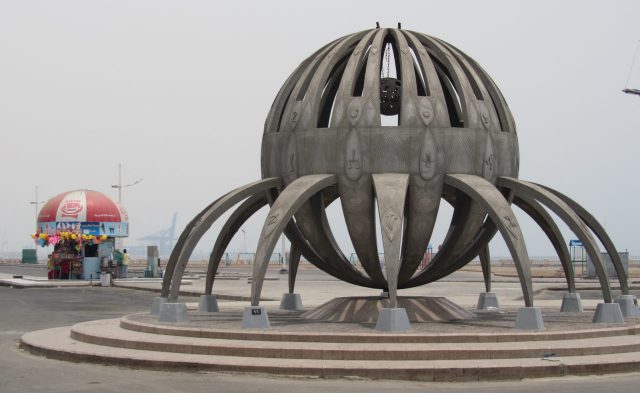
Jeddah's Amazing
Giant Sculptures

COLIN SIMPSON
Jeddah Corniche sculptures, Saudi Arabia
THERE’S been a lot of talk about modernisation in Saudi Arabia recently, with reforms such as the opening of cinemas and allowing women to drive being widely reported.
This is not the first time, however, that the kingdom has sought to embrace the new, though the previous attempt involved art, not social and economic changes.
Back in the 1970s Mohamed Said Farsi, the mayor of the Red Sea port city of Jeddah, embarked on a huge “beautification project” based around modern art. Monumental sculptures by the likes of Joan Miró, Henry Moore and Jean Arp, many of them specially commissioned, began appearing along the Corniche in an era when the petrodollars were in full flow.
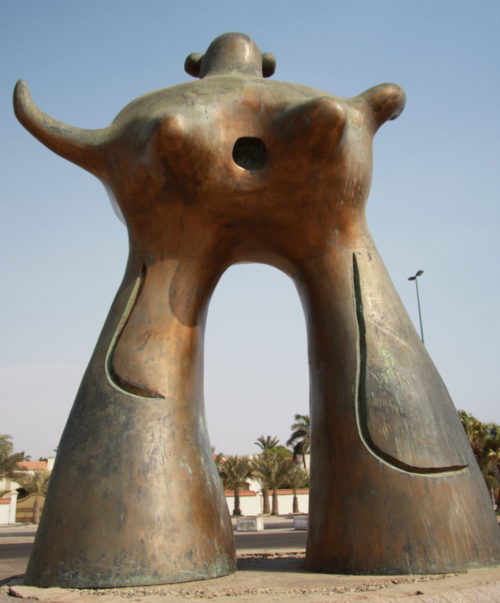
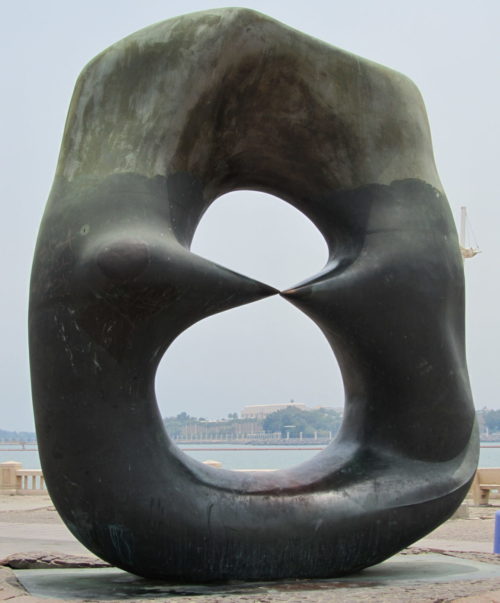
The project caused controversy locally as many residents felt it was a waste of money. However Farsi’s son Hany, speaking to The National newspaper, said no government cash was involved – the purchase of 400 works was funded by public donations or the mayor’s own resources.
Nevertheless, as I gazed up at, say, Miró’s Project for a Monument, I couldn’t help thinking that large-scale abstract modern art seemed an odd priority when, decades later, some housing in Jeddah remained dire, beggars held out their hands towards passing cars beneath flyovers, and piles of rubble seemed a more pressing candidate for beautification.
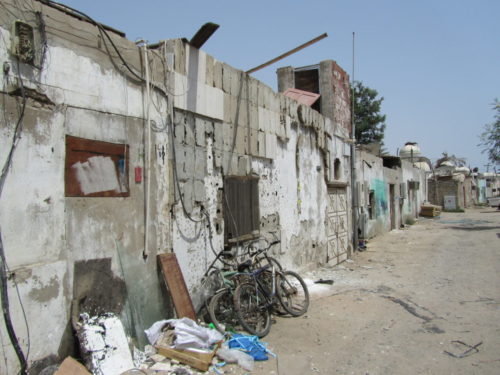
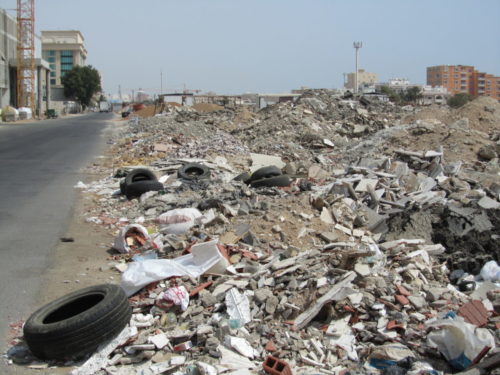
Still, there’s no doubting the quality of some of the works, and they do enliven a city where it can be difficult to think of things to do. Descriptions of Jeddah as liberal and easygoing are by Saudi, not Western, standards.
My favourite sculptures include that Miró – one of two by the artist on the Corniche – Arnaldo Pomodoro’s Rotating First Section No. 3, Moore’s Oval with Points and Ottmar Hollmann’s Large Ball Bearing. Julio Lafuente’s Accident! (Crazy Speed), with its cars set into a concrete block, captures perfectly the experience of driving on Jeddah’s Wild West roads.
Four decades standing in a harsh maritime environment took its toll on the sculptures, leading to the launch of a major restoration project. Around 20 of the finest pieces were repaired by experts and moved from their original locations to the open-air Jeddah Sculpture Museum. The artworks are not the only giant spectacle in Jeddah. Across the water from the Corniche, shooting up hundreds of metres into the sky, is King Fahd’s Fountain, the tallest in the world.
Verdict: Startling collection of large-scale Western modern art in an incongruous setting.
Top tip: If you’re taking photos on the Corniche make sure there are no Saudi women in the background to avoid offending locals.
Top photo: Ottmar Hollmann’s Large Ball Bearing.


Updated June 2020









MORE INFO
 WEBSITES IN SAUDI ARABIA can be pretty skimpy and uninformative, but the official Sculptures of Jeddah one is an exception. READ MORE
WEBSITES IN SAUDI ARABIA can be pretty skimpy and uninformative, but the official Sculptures of Jeddah one is an exception. READ MORE
RELATED
 NEW LIFE FOR OLD TOWN: Al-Balad, the ancient heart of the Red Sea port city of Jeddah, fell into disrepair during Saudi Arabia’s oil rush. Now it’s being brought back to life… READ MORE
NEW LIFE FOR OLD TOWN: Al-Balad, the ancient heart of the Red Sea port city of Jeddah, fell into disrepair during Saudi Arabia’s oil rush. Now it’s being brought back to life… READ MORE
 DESERT CAMEL FARM: Countries around the Arabian Gulf stage camel beauty contests with huge cash prizes – find out more in our post about visiting a camel farm in Saudi Arabia… READ MORE
DESERT CAMEL FARM: Countries around the Arabian Gulf stage camel beauty contests with huge cash prizes – find out more in our post about visiting a camel farm in Saudi Arabia… READ MORE
RECOMMENDED
 WELCOME TO OUR WORLD! Afaranwide’s home page – this is where you can find out about our latest posts and other highlights. READ MORE
WELCOME TO OUR WORLD! Afaranwide’s home page – this is where you can find out about our latest posts and other highlights. READ MORE
 TOP 10 VIRTUAL ATTRACTIONS: Many of the world’s most popular tourists sites are closed because of the coronavirus crisis, but you can still visit them virtually while you’re self-isolating. READ MORE
TOP 10 VIRTUAL ATTRACTIONS: Many of the world’s most popular tourists sites are closed because of the coronavirus crisis, but you can still visit them virtually while you’re self-isolating. READ MORE
 SHIMLA, QUEEN OF THE HILLS: Government officials once retreated to Shimla in the foothills of the Himalayas to escape India’s blazing hot summers. Now tourists make the same journey. READ MORE
SHIMLA, QUEEN OF THE HILLS: Government officials once retreated to Shimla in the foothills of the Himalayas to escape India’s blazing hot summers. Now tourists make the same journey. READ MORE
 TEN THINGS WE LEARNED: Our up-to-the-minute guide to creating a website, one step at a time. The costs, the mistakes – it’s what we wish we’d known when we started blogging. READ MORE
TEN THINGS WE LEARNED: Our up-to-the-minute guide to creating a website, one step at a time. The costs, the mistakes – it’s what we wish we’d known when we started blogging. READ MORE
 TROUBLED TIMES FOR EXPATS: Moving abroad can seem an idyllic prospect, but what happens when sudden upheavals or the inescapable realities of life intrude? READ MORE
TROUBLED TIMES FOR EXPATS: Moving abroad can seem an idyllic prospect, but what happens when sudden upheavals or the inescapable realities of life intrude? READ MORE
